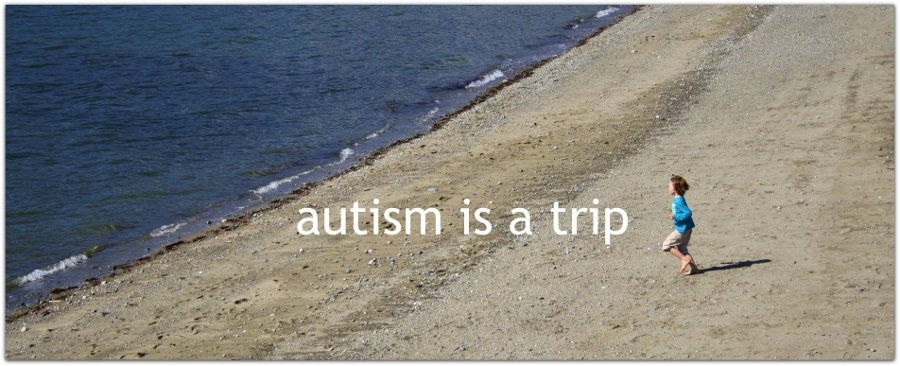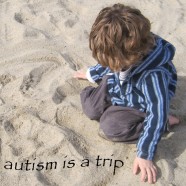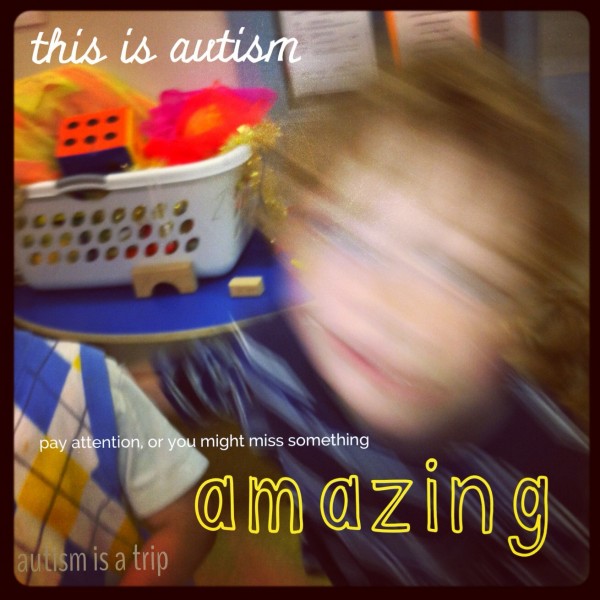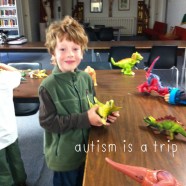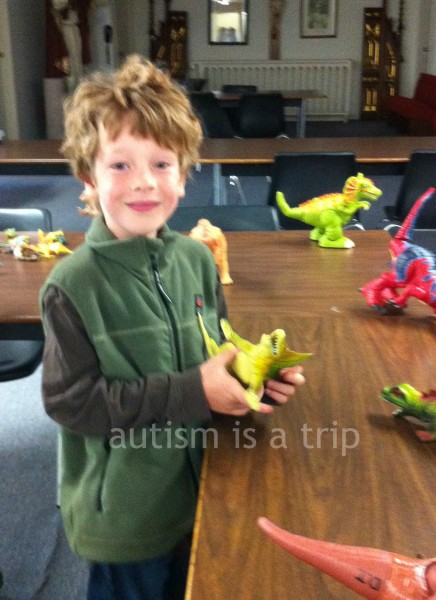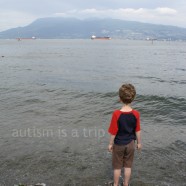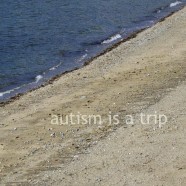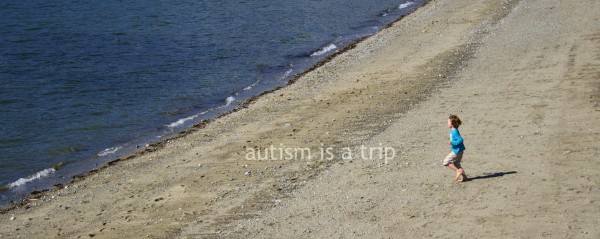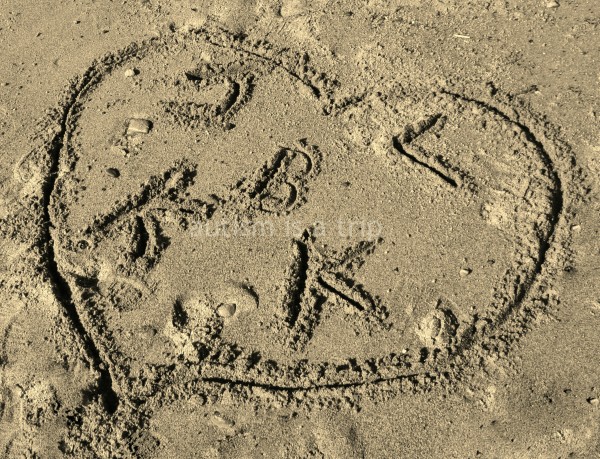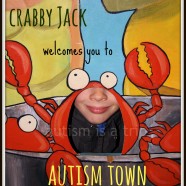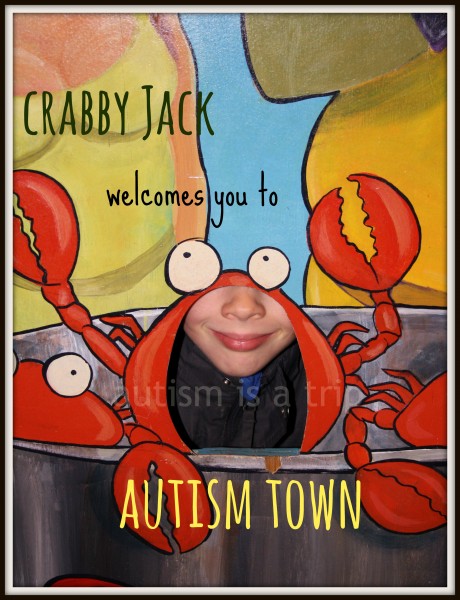Dear Jack… You Have Autism.
Dear Jack,
There is something your Daddy and I have wanted to tell you for a long time. Something that we weren’t sure how to bring up, or when. Something that has the potential to change the way you live your life.
Jack, you have autism.
You are my firstborn son, my love, my everything. I have adored you since long before I knew you. I waited to meet you my entire life, and when I met your Daddy, he was just as excited. We knew from the very first time we saw you on the ultrasound monitor that your name would be Jack. We didn’t even think twice, we just knew immediately, right there and then. Jack.
You know that you came into this world a bit early, earlier than your brothers. I spent a long time in the hospital waiting for you, waiting for the day it would be ok for you to come earthside. You were early, but very healthy. Daddy and I held you and couldn’t believe how beautiful you were. You are. Perfect little nose, perfect blonde hair, perfect little fingers and toes.
Perfect.
You came home and made us a family. You are the first, the oldest. Your three younger brothers love you, learn from you, and adore you.
We have known you have autism since you were three years old. Actually, that’s when the doctors told us officially. We’ve known you were special since before you turned two. You couldn’t speak, but you knew things. You were incredibly smart. I have no doubt you understood everything.
Knowing you have autism didn’t really change a lot for us. If anything, it made everything easier. You were able to get the support you needed, and some amazing people came into our lives because of it. Miss Amanda helped you learn how to talk and play. Aki and Jane helped you learn how to climb and swing and do small puzzles. Miss Amelia, Miss Deborah, Miss Shelby and Miss Jesse gently guided you into school, with lots of love and joy for learning. And Miss Shirin, who made sure that someone was always at your side (Eric, Charlie, Geoff, and Christine), teaching you how to cope when things get to be too much, how to focus your attention when necessary, how to be safe, and how to explore and enjoy the world around you with freedom.
They all gave you what every child wants and needs. Freedom.
When we moved to Canada, you started “real” school. Kindergarten. Grade One. Grade Two. This fall you’ll be going into Grade Three, which I can barely believe. Not only are you thriving educationally, you’re speaking French while you do it. Even more amazing people have guided you to this point: Mme Riel, Mme MacIntyre, Mme Dowes, and Mme Okeyere have taught you as they taught every other child in their classes, and gave you every respect and inspiration you deserve. Mr. Yaniv and Mr. Perk have guided you from behind the scenes, putting you on the right path and making certain everyone charged with your care is trained properly and know how to support you in the best way possible. And Mme W in Kindergarten, and Mme S ever since, have been by your side every single day.
Because of this team of professionals, this group of people who both want you to succeed and love you dearly, you are the boy who stands before me today. Jacktor The Tractor. JackJack. Jack.
A child who once could not speak at all, who now can not only speak English on a high school level, but can speak French as well.
A child who had such low upper body tone as a toddler that he could barely climb a play structure, who has now mastered not only the monkey bars, but also taught himself how to ride a bicycle (without training wheels).
A child who had no concept of how to play with his toys or colour or use his imagination, yet has now filled my home with extensive drawings of whatever the popular subject is this week, expansive and intricate art projects he’s built, and fantastic books he’s written about wild adventures and alternate universes.
Autism is not a bad thing, it’s just a thing.
Autism is why you only had four words when most other kids your age were chatting away. Autism is the reason you don’t like fireworks, or big crowds of people. Autism is why you get to walk around in the halls at school when being in class just gets to be too much.
It’s why you run through the house in loops, and don’t always listen when someone is talking to you. It’s why I ask you to look into my eyes, so I know for sure that you’re hearing me. It’s why the loud things and the buzzing things and the light things and the random things make you stressed a lot more than other people.
Autism is why you always went to special gyms and preschools and your brothers didn’t. It’s why we went into Vancouver so many times to see the doctors at the place with all of the toys, even though you weren’t sure exactly why we were there.
But Jack, there is something incredibly important for you to understand about all of this. Autism is the reason for a lot of stress in your life, but it is also responsible for you being “you.”
Autism is the reason you could write your name and build intricate structures at a very young age. Autism is the reason you were able to learn how to read in English, how to ride a bike, how to tie your own shoes, and any number of other tasks you took it upon yourself to learn. To teach yourself.
Autism is why you see things a little bit differently than your brothers. And your friends. And most people, for that matter. People look at things and see them for what they are on the surface, you want to know what’s inside. You yearn to dissect and examine everything that interests you, and a whole lot of things interest you.
It’s the reason your younger brothers can read, write, do math, name all of the planets and discuss weather anomalies and scientific principles far beyond their years. Because you have taught them. Because you are curious and thirst for knowledge, and want to share it.
Because you have autism.
And that’s why we’ve waited. We don’t want you to change anything. Not the way you live, the way you think, the way you see the world. Nothing has changed for us, and nothing should change for you.
I know now you will want to know every single thing there is to know about autism, because that’s what you do. In your investigations, you are bound to read some not-so-positive things about autism, about the autism spectrum. There are people out there who believe that autism comes from lots of different sources, that believe people with autism need to be “cured,” that want to eradicate autism completely.
You will make up your own mind about all of these things as you grow and experience life as a person with autism. Our job as your parents is to love and support you on your journey to adulthood, just like your brothers. We have given, and will continue to give you, every advantage we can to make it as stress-free as possible.
Sometimes, though, the stress with break through. You may get frustrated with other people, difficult situations, and even yourself. But I need you to understand the most important thing of all.
You are special. You are Jack. You are not autism.
Autism is not who you are, or what you are. Autism is just another part of you, like your thick, curly hair, your long legs, and your blue eyes. Autism did not determine your personality, and it cannot determine your limits. Only you can decide those things. You have the power to be whomever you want in this world, and whatever kind of person you’d like to be.
My wish for you is that you remain loving and curious. That you have the tools you need to cope when things get difficult, and not let the difficulties stop you. Please don’t ever stop learning.
Jack, I want you to show the world that you don’t live in spite of autism, or because of it. You are amazing because you are Jack.
With all of the love in the world,
Mama
Share this: Twitter | StumbleUpon | Facebook | digg | reddit | eMail Read More
The Dinosaur Gods
My husband and I were both raised in religion, his was Judaism, mine was Presbeterianism (is that an ism?). I was baptized, he had his Bar Mitzvah. He even went to a Catholic high school, and took an educational trip to Israel. He is decidedly more well-versed in religion than I am.
Yet we have both come to the same decision: as far as our “formal” beliefs as adults go, the jury is still out. Agnosticism, atheism, there’s not quite an -ism for us. Not-sure-what-to-label-us-ism.
Either way, there is one thing that’s clear. We have never really discussed the concept of “God” with our children.
We have talked about death. Death and dying and the afterlife and all of the details therein ad nauseum. The boys are very aware that their Grandma Judi (my mother) passed before they were born, and for several years now they’ve been asking the whole gamut of questions.
Death is always a tricky one with children, but as usual, autism brings it to a whole new level. Jack’s phase of asking people about my mother’s death directly seems to have ceased for the time being. My father will be happy to hear that one.
Jack understands that my parents divorced before my mother died, and he gets where his Grandma S (my step-mother) fits into the picture. That didn’t stop him from looking my father directly in the eye and asking “is your wife dead?”
Yeah, that was an awkward moment. I had prepared my step-mom for the potential questions, since it had been a hot topic for Jack that month, but I had forgotten to inform my dad.
Sorry, Dad. He gets it now. I think.
So even though we have gone through the science and semantics of life, the universe and everything, we have not yet discussed the Big Guy in The Sky. Not for any specific reason, we just haven’t.
Until this week.
For some reason, Jack was discussing baptism with his special needs assistant (SEA) at school. She told him that baptism is, basically, where babies get a little water put on their head, and it’s something people do to show their devotion to God.
Yes, he wanted to know all about why you would possibly want to put water on a baby, but that wasn’t the first thing he asked. No, he had another query, one his SEA was wholly unprepared for.
“What’s God?”
I would like to formally apologize to Jack’s SEA. I remember the first time he asked about death, and the cold chill that went up my spine. My husband wasn’t home, and I was put right on the spot. What’s the right answer? *Is* there a right answer?
After taking a moment to consult her French dictionary, the SEA rallied.
“God is a supreme being that some people believe in, and they go to church to show their belief.”
Jack thought about that for a while. He’s been obsessed with space and all things science, so she expected a whole host of pointed questions.
He had only one.
“I went to dinosaur camp in a church. Do those people believe in dinosaurs?”
Yes, yes they do.
That’s my story and I’m sticking to it.
Share this: Twitter | StumbleUpon | Facebook | digg | reddit | eMail Read MoreWhy Didn’t Mikaela Lynch Get an Amber Alert?
I also blog over at redOrbit.com, and this was my other post as part of “An Outpouring of Love for The Mikaela Lynch Family.” To read more entries from other writers, please visit this site. You can see the original post here. Sadly, several more autistic children have drowned since I wrote this article not two weeks ago.
******************************************************************************************
There is a question many are asking in the wake of Mikaela Lynch‘s disappearance in Clearwater, CA last week. Actually, there are a lot of questions being asked by a lot of people, but there is one that I, and many in the autism community, would really like an answer to.
Why was there no Amber Alert for this missing nine-year-old girl?
It’s important to understand that not all missing children get an Amber Alert issued for them. In order to “qualify,” missing children must fit certain criteria. Primarily, the family must be able to prove the child was abducted, and preferably give a description of the abductor and/or their vehicle.
A missing autistic child does not fit the criteria for an Amber Alert, yet the dangers are just as real and just as imminent as for one who has been abducted.
Over half of all autistic children are “runners”: children who, given the chance or the right circumstances, will simply go. Take off. Run. Sometimes there is a destination, oftentimes there is not. My child runs when he doesn’t want to leave somewhere or when he’s off in “his world,” as we call it. He gives us very few clues as to where and when it might happen, so we are always wary. It doesn’t happen very often with him, but many autistic children are continuous flight risks, meaning their families are on high alert at all times, day and night. Their houses are fortresses of locks and gates and barriers and alarms.
Another curious thing about autistic children? They’re fast. Faster than you’d ever think, and highly trained in the arts of evasion. If an autistic child wants to run and you’re not ready for it, there’s not a whole lot you can do other than hope you can run faster. Or hope there’s someone on the other end who can run interference. A lot depends on hope.
Mikaela was nonverbal. She could not speak, nor really understand the world around her past the cognizance level of a very young toddler. Mikaela was also not toilet trained. That’s not unusual for children on certain parts of the autism spectrum, nor is it a surprise to anyone who has an autistic family member or knowledge of autism. Autism parents talk about speech competence and toilet habits in the same breath. It’s just another part of life. And no, it doesn’t matter if she was or was not able to use the toilet herself, but it speaks to her vulnerability. It’s not newsworthy in any kind of sensational way.
Autistic children are barraged with sensory input, and are equally drawn to things that stand out to them. Mikaela, like many children, loved water. Given the chance, she went to the water. Mikaela had sensory issues with her clothing – typical among individuals on the spectrum – and liked to shed it when she was hot. Within minutes of leaving her home, she was naked. A naked nine-year-old girl, running down the street, headed for water.
I cannot imagine putting a child in a more vulnerable situation.
Knowing these things about Mikaela, it becomes a little easier to see why she may have taken off in such a hurried manner. How often do parents find themselves chasing toddlers who have run off after a butterfly or a car or a cloud? Who strip naked at the drop of a hat? Small children are amazed with the world, and they want to embrace it. Individuals with autism experience the world much in the same way. To them, everything is bigger and louder and brighter and more extreme (this is an excellent video that attempts to replicate how an autistic person experiences their environment).
Autistic children with a high-risk of eloping (running) can be fitted with a tracking anklet or GPS tracking device in their school bag (there are bracelets and watches, too, but those can be torn off by an extremely sensitive individual). There is an endless array of identification items for autistic children, everything from temporary tattoos to shoe ID tags. We’ve even resorted to writing our phone number on Jack’s upper arm where he can’t rub it off.
The majority of us in the autism community don’t need to ask what security measures Mikaela’s parents had in place to keep her contained and out of harm’s way. We can safely assume, knowing her abilities and cognizance level, that they had multiple precautions in place: locks, gates, constant supervision, etc. As will happen in the best of circumstances, life intervened. An unexpected chain of events led to Makaela being unsupervised for a moment. A moment she seized. A moment her family will never forget.
There is no one to blame for Mikaela taking her chance to run, nobody to fault. There is simply no way to keep a nine-year-old child under total surveillance without locking them away in a room. Things happen, life happens, tragedy happens.
It’s what happens next that’s important. Mikaela’s family was just minutes behind her, and called the police quickly. Hundreds of law enforcement and concerned citizens joined in the search. But because Mikaela was not abducted, there was no Amber Alert.
Perhaps they make a good point in narrowing the field of children to abductees, so that people don’t get desensitized to the alerts. The good they do, though, cann0t be denied. Amber Alerts go out over the radio, the television, Twitter feeds, text messages, email, up on SigAlert signs on highways, and more. Information about the missing child is spread far and wide within a very short span of time, and it has been proven to work, time and again.
Autistic children deserve that same attention. Mikaela was, sadly, not the first autistic child lost to drowning this year. Or even this month. She is, in fact, one of three children who have drowned in the last week alone.
Drowning is the leading cause of death for autistic children under the age of 14, and not by a small margin, either. 91%.
I can’t help but think that if an Amber Alert had been issued for Mikaela, perhaps someone may have taken a closer look at the child in the street. Or joined in the search. Or come forward with information they didn’t realize was relevant.
We can’t beat ourselves up for what might have been, but we can change the future for autistic children. If we can’t give them an Amber Alert, perhaps we need a new alert. One specifically for vulnerable autistic individuals. The family of Amber Hagerman, another nine-year-old who went missing, paved the way for the Amber Alert. As a result, countless children are alive today. Our children deserve the same attention, the same urgency, the same rapid dissemination of information.
We need an Autism Alert, and we need it now. We can’t spare any more of our very special babies.
To learn more about what you can do to help prevent wandering incidents and deaths within the autism community, please visit The AWAARE Collaboration.
This post is part of “An Outpouring of Love for The Mikaela Lynch Family.” To read other entries, please visit this site.
Share this: Twitter | StumbleUpon | Facebook | digg | reddit | eMail Read MoreThe Missing Pieces
There are missing pieces in the autism community today. Beautiful, tragic pieces named Mikaela, Owen and Drew.
So much has been said and written about Mikaela, yet there is so much more that needs to be said. To be screamed. To be cried out into the night.
Our babies are not safe.
We do what we can. We install extra locks, we put up barricades, we install alarms. We put up signs and rub temporary tattoos on little arms and put ID tags on shoes. We tell everyone entrusted with their care to be aware, be cautious, be vigilant.
But we know, at the end of the day, that our children cannot be locked away in a safe room forever. They cannot be grasped by the wrist or strapped into their seats at all times.
Our children, like all children, need to experience the world first-hand. They can’t do that from behind bars.
To do this, we have to trust in so many things. We have to trust that the people watching them will not look away. We have to trust that the child remembers – even a tiny bit – about safety. We have to trust in the unknown.
We also have to give ourselves a break. Parenting and giving care to an autistic individual can be exhausting and exhilarating. It can eat away at you in the same moment it’s filling you with the most joy. It can raise you up, and beat you down.
And sometimes things happen.
Mikaela Lynch’s family will never forget the moment she disappeared. Nobody made a mistake, nobody dropped the ball. Mikaela simply found a weak spot in her web of safety and took her chance to run free.
Like children will, she headed for water. Like many autistic children, she simply didn’t understand the dangers. The danger of a nine-year-old girl out in the world, unclothed, on her own. The danger of water when you cannot swim.
Children will always find a way around the borders and fences we construct for them. It’s our job to provide guidance and limits, it’s theirs to bust through them. It’s a part of learning and growing. So what happens when that curious child never grows out of the desire to run? What do we do when the guidance and limits fail? Because sometimes, they will fail. We are only human.
Abducted children get an Amber Alert, a barrage of information that disseminates quickly via television, radio, emails, texts, lottery tickets, Twitter, Facebook, SigAlert signs over highways, and more. There is no time to lose when a child is abducted, so the system acts as quickly as possible.
While I understand that sending out too many Amber Alerts has the potential to desensitize the public, there needs to be an equivalent alert for autistic children. Wandering, running, bolting autistic children are at risk every bit as much as if they were abducted. There are just too many variables when it comes to a child who may not even understand the concept of danger and safety.
I can’t say that the sad stories would have ended differently if there had been an alert. But the success of the Amber Alert speaks for itself. Anything is worth doing if it saves just one life.
We talk a lot about autism awareness, and this is what it comes down to. Let the public be aware. Aware of what a child with autism will do. Aware of the inherent dangers. Aware enough to step in and help.
They can’t, unless we tell them. Alert them.
We simply can’t keep losing our children like this. Not when something so simple may have saved them.
I want to change the system. For my child, for your child, for Mikaela. And Owen. And Drew.
To learn more about what you can do to help prevent wandering incidents and deaths within the autism community, please visit The AWAARE Collaboration.
This post is a part of “An Outpouring of Love for The Mikaela Lynch Family.” To read other entries, please visit this site.
Share this: Twitter | StumbleUpon | Facebook | digg | reddit | eMail Read MoreAt The Heart of Darkness
I am a generally happy person. I try to find the humour and joy in everything, even when it would appear that there is none to be had.
It’s been difficult to find my smile lately.
I should elaborate. I have many reasons to smile daily, all day long. I have four amazing children, my beautiful, beautiful boys, whose every breath is reason to be joyous. I smile, but there is something lurking behind it. Something dark and sad, something I’m trying my best to understand.
I am anxious. I am depressed.
I have suffered from Post-Partum Depression (PPD) after each of my children’s births, in increasing severity. My youngest son was born in October and this time it came over me like a tidal wave, the worst yet. Many people and medications support me, but the dark cloud persists. I feel like I’m going through the motions, watching my happy life from the outside.
I’m trying to put my finger on it. Baby blues? Could still be, my child is only six months old. Four children seven years and younger? Of course. There is stress in wrangling them here and there, getting them into bed, entertaining them, feeding them. They eat a lot. Seriously, a lot. But all of those things are part and parcel with motherhood. All of those things are expected. If I didn’t think I could handle this job, I wouldn’t have applied, and kept applying. My entire life brought me to this point, and I wouldn’t change a thing.
(Ok, in a perfect world there are things in my past I would have done a whole lot different, but we don’t get do-overs. It’s easier to accept that the decisions I’ve made in life, for good or bad, have created my life today. And I kind of love my life today.)
Autism? Autism is a huge part of our lives. It’s pervasive, and up to now, we’ve made it work. I realize, however, that things are changing. It’s getting more difficult. Jack is getting older. He’s getting stronger and smarter. A lot smarter. And he’s busting through all of the tools I’ve used to help him – and myself – cope. So we’re at a plateau of sorts. Or maybe diverging paths. Jack is heading into his future, and I am scrambling, trying to keep up with him. Trying to get us back in sync.
I’m flailing.
Another entity has also invited itself into our family, or is trying to. ADHD*. We are having one of our sons assessed, and I’ll be surprised if that’s not the outcome. It’ll be a few more months and a few more doctor’s appointments and a few more assessments until we know for certain, but I want to know for certain. I don’t like ambiguity, especially in my home, with my children. I am staring down the barrel of this the same way I did with autism. If my child has a challenge, I want to know what it is so we can get going. Get a handle on it. Get ahead of it. Early intervention is the best solution in any situation involving a child. Involving anyone, honestly.
If that were the only issue, I would be fine. But no, ADHD didn’t want to stop there. In the process of understanding what’s happening with my son, I started realizing something about myself. The doctor we saw last week asked me something that threw me for a loop. After going over our family’s medical history, she asked a simple question. One I hadn’t ever heard put in quite this manner.
“Does his behaviour resemble anyone in your family?”
I looked at her, stunned. The sky opened up, the clouds parted, a window of clarity descended upon me.
Or maybe I blinked.
Yes, in fact, it did resemble someone in my family.
Me.
Insert montage of snapshots of my life: my elementary school report cards describing in detail how I couldn’t sit still, talked too much, couldn’t focus; a trip to the doctor as a small child, with the word “hyperkinesis” ringing in my mind; family members telling me I talked too much, sit still, calm down. I was obsessed with candy (the bad kind, not the kind I give my kids now). I stole money from my mother’s wallet and my father’s bureau. I couldn’t handle not getting what I wanted, and screamed and banged my head when I couldn’t deal. Punishments didn’t mean a lot to me, as I was somehow always able to adapt. I lived in constant anxiety about one thing or another. My main recollection of myself as a child? Obnoxious.
That is how I always thought of myself, until one day in high school I looked in the mirror and decided I wasn’t going to be that person anymore. I embarked on a long journey of figuring it all out. Teaching myself how to take turns in conversations and not only talk about me and mine. Working to tune out the sensory overloads that hurt my head. Putting myself into social situations and act accordingly, even though I was deathly afraid. Trying, desperately, to become a “me” I could look in the mirror and love.
That’s a lot to carry around.
I pulled out those report cards not too long ago, and read them all in detail. And I cried. I cried for the little girl who never really understood why she was in trouble. Who didn’t know why she did the things she did, but couldn’t stop herself from doing them again. Who desperately wanted to fit in somewhere, anywhere, but just… couldn’t.
And I cried for my children. Because I don’t want them to ever feel what I felt. I want to shelter them from the awkwardness, the self-consciousness, the underlying feeling that they don’t belong.
I want my sons to know what is within them that makes them do things differently sometimes, and to understand not only how to manage and cope, but to know and believe that they are perfect exactly the way they were born.**
I’m not under the illusion that I can save my children every heartbreak, every hurt. Part of growing up is experiencing the things that will make them into strong men, whole men. Heartbreak and hurt are a part of the deal as much as love and fulfillment. Yin and yang.
If I can do anything to keep my children from feeling the confusion I had, I will. If I can tell them every single day that they are beautiful and confident and awesome just the way they are, they might believe it. I can try. I have to try.
In the moment when the doctor asked that simple question, I realized that my child is very much like me. He’s the only one of our four boys who really looks like me (the other three are clones of my husband), and now I know he shares more than my features.
The most important thing I took out of that meeting was the very real possibility that if my son has ADHD, I most likely have it, too. It’s genetic, so it’s entirely possible. The most damning evidence, though, is that word I remember so vividly from long ago. Hyperkinesis. I’ve known it all of my life, but never really understood what it meant for me. I know now that hyperkinesis is what they called ADHD before it was ADHD.
I know that after my mother took me to the doctor and we learned that word, she put me on the Feingold Diet and cut out all artificial colours and flavours. I don’t remember anything else, though. No medications, no more doctor’s visits. No more addressing the elephant in the room.
Me.
Sadly, my mother has passed away, so I can’t ask her all the questions that are running around in my brain. My father has told me as much as he recalls, but there’s more. I’ve been questioning myself since Jack was diagnosed almost five years ago, and now it all seems to be making sense.
I want to know more. What can I do to get more focus? Would medication help? Is the medication I’m on making it worse? I want to banish the ambiguity.
So, I think I’ve discovered the source of the darkness: I am overwhelmed. I have several very large balls in the air, and I’m afraid if I drop them, I’ll fail my family. Autism. ADHD in my child. ADHD in myself. The anxiety. The unknown.
I am strong, I have been through worse. I just want answers, and I want clarity.
I want to help my son navigate his life with autism.
I want to help my other son cope with whatever is challenging him.
I want to get ahold of myself so I can live my life free of this weight that’s pressing me down.
I want to smile.
*****************************************************************
*There are some who may hear ADHD and think, “Oh, that’s not so bad, it’s not as bad as autism.” No, it isn’t, it’s different. It’s still a challenge, both to the individual who has it and the family that supports them. It’s work, on top of lots of other work. Not impossible, but difficult nontheless.
**I feel it’s important to note that I do not blame my parents in any way for the way I felt, or the way they handled me. This was forty years ago, and an entirely different world. If anything, my experiences have informed me well to guide my own children.
Share this: Twitter | StumbleUpon | Facebook | digg | reddit | eMail Read MoreHappy Birthday to Us!
Another year has come and gone and here we are. Three years ago, I sat down to share some of our stories. Our child, our beautiful boy who happened to have autism, was too hilarious to keep to ourselves.
I had no idea where that day would lead.
Three years later, I’ve written over a hundred posts (yeah, I know, I need to step it up), gathered almost two thousand friends in the Facebook community, countless more on Twitter, and made too many new friends both on-line and in real life to count. We have helped raise money locally for our autism societies here in British Columbia, given guidance to some folks new on the path, and gained more knowledge and wisdom and love than I could ever begin to give back.
But I will try. I will be here more often, that is my pledge to you, to myself, and to Jack. There are so many stories to tell, so many lessons to learn, so very many new friends to meet. We are together, even if we never meet face to face. Our autism life is a big buffet, and we’re bringing laughter with a side of activism. I look forward to seeing what you’re bringing, too.
Cheers, to you, to us, to this crazy thing we call autism.
Namaste, friends. I’m so very happy you’re here.
Share this: Twitter | StumbleUpon | Facebook | digg | reddit | eMail Read More